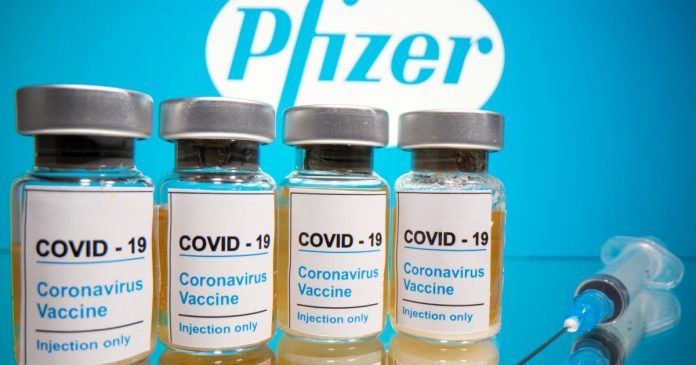Two positive developments this week could potentially expand access to the Pfizer-BioNTech Covid-19 vaccine at a time when nations around the world are trying to ramp up vaccinations.
A study in Israel showed that the vaccine is robustly effective after the first shot, echoing what other research has shown for the AstraZeneca vaccine and raising the possibility that regulators in some countries could authorize delaying a second dose instead of giving both on the strict schedule of three weeks apart as tested in clinical trials.
Although regulators in the United States have held fast to the requirement that people receive two doses of the Pfizer-BioNTech vaccine three weeks apart, the British government decided to prioritize giving as many people as possible an initial dose, allowing delays of up to 12 weeks before the second dose. The Israeli study could bolster arguments for emulating that approach in other countries.
Published in The Lancet on Thursday and drawing from a group of 9,100 Israeli health care workers, the study showed that Pfizer’s vaccine was 85 percent effective 15 to 28 days after receiving the first dose. Pfizer and BioNTech’s late-stage clinical trials, which enrolled 44,000 people, showed that the vaccine was 95 percent effective if two doses were given three weeks apart.
Dr. Anthony S. Fauci, the nation’s leading expert on infectious diseases and an adviser to President Biden, said at a White House news conference on the pandemic on Friday that the results of the study are not significant enough to change the U.S. recommendations.
He pointed out that the people in the study were on the younger and healthier side and the researchers could not say how long the protection from one shot of the vaccine would last. He also said it was possible that a less-than-optimal dose might not kill the most powerful variants of the virus, theoretically allowing them to spread more quickly in the population.
“We want the public not to be confused. The recommendation from the F.D.A. is two doses, just as it always has been,” Andy Slavitt, a White House virus adviser, said during the briefing.
Pfizer and BioNTech also announced on Friday that their vaccine can be stored at standard freezer temperatures for up to two weeks, potentially expanding the number of smaller pharmacies and doctors’ offices that could administer the vaccine, which now must be stored at ultracold temperatures.
In a statement, the companies said they have submitted the new temperature data to the Food and Drug Administration, which would need to sign off on guidance to providers that would allow them to store the vaccines at the new temperatures.
Distribution of the Pfizer-BioNTech vaccine has been complicated by the requirement that it be stored in freezers that keep the vaccines between -112 and -76 degrees Fahrenheit. The vaccines are shipped in a specially designed container that can be used as temporary storage for up to 30 days, if it is refilled with dry ice every five days. The vaccine can also be refrigerated for up to five days in a regular refrigerator, if it has not yet been diluted for use in patients.
A similar vaccine from Moderna, by contrast, can be stored in standard freezers and then in a refrigerator for up to 30 days, which has allowed it to be used more readily at smaller vaccination sites.
The Centers for Disease Control and Prevention said on Thursday about 41 million people have received at least one dose of a Covid-19 vaccine, including about 16.2 million people who have been fully vaccinated.
Source: New York Times
















